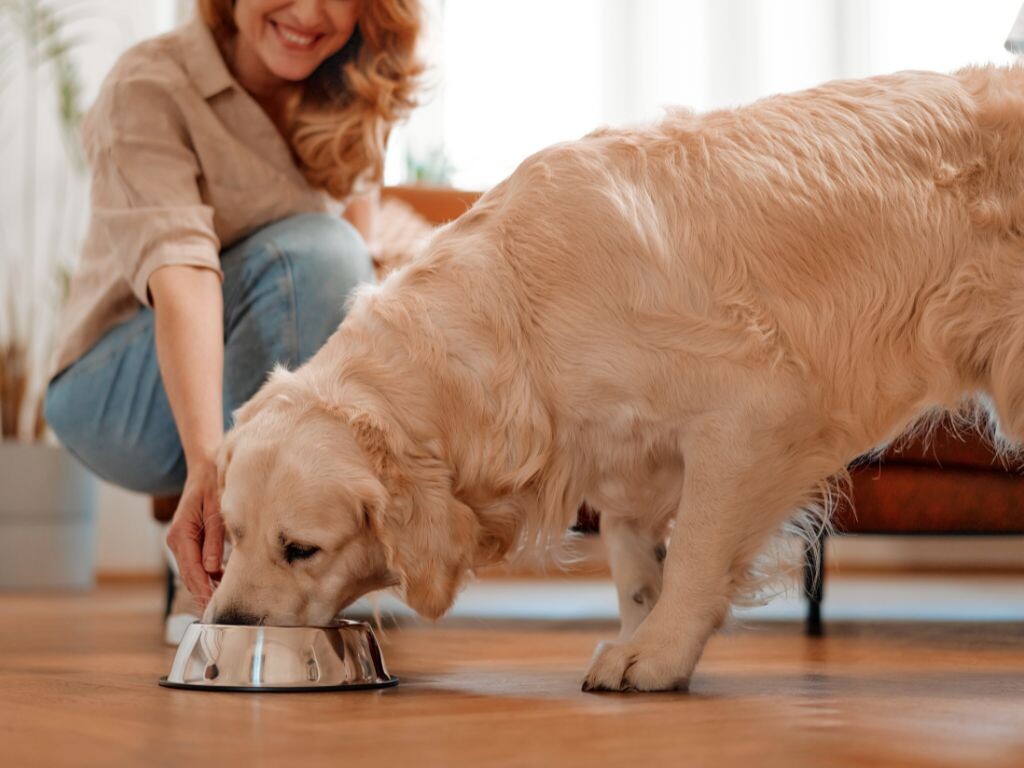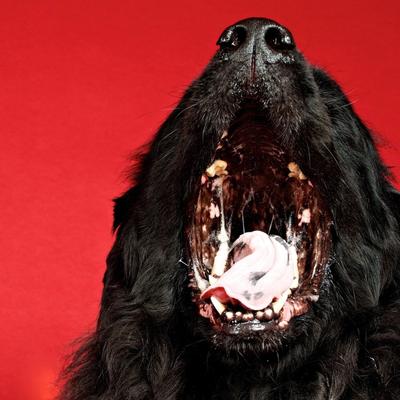
Diet plays a fundamental role in the health of the animal, even more so when it suffers from kidney failure. The treatment prescribed by the veterinarian is very important and the choice of food is just as important. To protect the remaining kidney functions, his diet is adapted to reduce the sources of substances toxic to the kidney and the waste that his organ can no longer filter in such large quantities.
What is kidney failure and its symptoms in dogs?
Severity of the disease, age and breed of the dog, overall health and care received play a crucial role in ensuring that the dog maintains the functions of this essential organ for as long as possible to clean the blood and eliminate toxins from its body. When the kidney no longer performs its detoxifying function, urea accumulates in the body, causing numerous symptoms. Renal failure can be acute, the signs of the disease are then sudden and irreversible. When the pathology is chronic, it causes the partial destruction of organic functions and is equally irreversible. Symptoms appear when 75% of kidney function is destroyed. If it is no longer possible to restore the entire functioning of the organ, a diet adapted to the pathology ensures better living comfort for the animal and helps extend its life expectancy.
If your dog exhibits these various symptoms, consult his veterinarian without delay. He alone is able to establish the diagnosis and support you in comprehensive care of your four-legged companion and his illness:
- Increased frequency of urination;
- Signs of dehydration;
- Bad breath;
- Dull coat;
- Traces of blood in the urine.
In the case of acute renal failure, the dog will present:
- Great fatigue or weakness;
- Difficulty moving;
- Difficulty of coordination;
- Loss of appetite ;
- Vomiting;
- Diarrhea.
If your dog shows several of these signs, consult without delay.
Foods to avoid when feeding your dog with kidney failure
When the kidney no longer performs all of its cleaning functions, in addition to the treatment prescribed by the veterinarian, the food given must reduce the sources of substances toxic to the kidneys and urea waste. The choice of proteins that make up your diet is not the only point to check:
- Remove plant proteins from your diet;
- Greatly limit phosphorus intake: dairy products, bones, liver, blue fish or dried vegetables;
- Vegetal oils ;
- Salt.
Salt is an unnecessary ingredient in preparing a dog's meal. In addition to the heart problems it will cause, it increases the quantities of proteins released in the urine, reinforcing the deterioration of kidney functions.
Conversely, to protect the animal's kidneys and give it many more good years at your side, choose a diet based on:
- Meat proteins with high biological value, but in more limited quantities;
- Lipids of animal origin;
- Omega-3 that you find in white fish oils;
- Fruits and vegetables that our canines can eat without risk.
Dogs with renal insufficiency must hydrate more regularly than dogs who do not suffer from it. In addition to changing his diet, he must have a good bowl of fresh water available throughout the day and night.
Criteria to follow when feeding a dog suffering from kidney failure
Although the canine is not a strict carnivore, quality meat proteins protect its kidneys throughout its life and even more so when it suffers from kidney failure. Animal by-products such as heads, carcasses, hides, necks, legs, beaks and feathers require greater digestion work for the dog and put too much strain on its kidneys and liver. The use of animal meal in the preparation of kibble also generates an overuse of its organs.
Normally, a healthy dog's ration consists of: 1/3 meat or fish proteins, 1/3 carbohydrates composed of rice, puffed rice or pasta and 1/3 lipids, vitamins and minerals . To rebalance the meals of your dog with renal insufficiency and not overstrain his kidneys, white or lean meats are recommended. Fish, rich in phosphorus, is not recommended as part of your diet. Consult your veterinarian for advice on establishing food rations. Favor lipids of animal origin and reduce the intake of insoluble fiber as much as possible. As part of the household ration, vitamin, calcium and mineral supplements must not contain phosphorus. Take advice from your healthcare professional to dose your intake correctly.
Industrial food or household ration to feed dogs with kidney failure?
Homemade food requires much more organization and time, many owners maintain the habit of kibble meals to feed the animal which suffers from a kidney pathology.
What criteria for choosing kibble?
Veterinary brands will meet the specific needs of the animal. The kibble must provide sufficient calories without increasing the level of urea in the blood and unnecessarily tiring the already diseased kidney. Sufficiently caloric, the kibbles provide sufficient energy to the doggie who suffers from a sharp reduction in his appetite.
To ensure that the food will protect the dog's remaining kidney functions, check the calcium/phosphorus ratio. This should be between 2 and 2.5. The phosphorus content must be less than 1 g/Mcal. Proteins, in moderate quantities, must come from meat and not from offal or meat meal. Boxes, sachets or kibbles will also contain high quality omega-3 in their composition.
What foods are recommended for the household diet of dogs with renal insufficiency?
Offering a homemade diet remains the best answer to preserve the dog's remaining kidney functions and keep him with you longer. It is crucial to be accompanied by your veterinarian or a veterinary nutritionist to establish the diet adapted to the pathology, state of health, age and breed of your pet. This collaboration will make it possible to offer your dog a tailor-made diet that will cover all of its nutritional needs. Regular monitoring of his weight, his general condition and his kidney function is implemented first every two weeks then every three months. Depending on the clinical condition of the dog and the stage of the disease, this monitoring allows the rations to be adjusted as best as possible and the remaining kidney functions to be better protected.
The choice of meat remains essential to ensure an effective and protective diet. Chicken breast, turkey, eggs, cod, hake or tilapia remain a good source of protein whose phosphorus intake is limited. Served in limited quantities, they will be cooked without added fat or seasonings.
What treats should I offer my dog?
Here again, it is best to contact your veterinarian to introduce new foods to his diet or offer him treats. Choosing treats that stimulate his appetite without increasing urea levels remains essential to protect your dog's kidneys. Cooked white fish and cooked eggs can be used as treats. Crunchy raw vegetables and fruits will enhance his learning:
- Carrots;
- Green beans ;
- Celery;
- Piece of seedless apple;
- Blueberries.
Finally, plain puffed rice is a light treat appreciated by doggies.
How to restore the appetite of a dog suffering from kidney failure?
A symptom of this pathology, it is sometimes difficult to feed dogs with renal insufficiency and provide them with the necessary proteins. To make his mouth water and awaken his appetite, you can:
- Vary your meals by preparing several portions in advance and freezing them.
- Distribute smaller rations and more frequent meals. Be careful, to protect the function of your organs, it is preferable to reduce the number of meals per day. Take advice from your veterinarian to ensure that this method does not risk accelerating the deterioration of his organs.
- Prefer fresh vegetables to canned vegetables whose salt content is not recommended for dogs suffering from kidney failure. From time to time and with the agreement of your veterinary nutritionist, add a pinch of salt when cooking the rice or one or two drops of nuoc-mâm sauce.
The household ration can represent a significant budget for the owner. The dry food developed for dogs with renal insufficiency is perfectly suitable as long as the owner provides rigorous hydration to the animal. Binutrition combining kibble for dogs with kidney failure and household rations or kibbles and pâtés developed for this pathology helps reduce the cost of meals while protecting the health of your pet.




